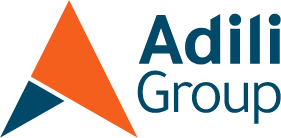INSIGHT
Key Regulatory Developments for East African Businesses in 2024
Introduction
As the year progresses, we anticipate several developments in the regulatory landscape for businesses operating in East Africa from a compliance perspective. This calls for businesses to be agile as they adapt to and comply with new standards and regulations.
Some of the developments include:

1. New CMA regulations on corporate governance in Kenya
The Capital Markets Authority (CMA) of Kenya has finalised the review of the Public Offers Listing and Disclosure regulations for issuers of securities to the public in Kenya. This was necessitated by the need to incorporate emerging areas and streamline eligibility and listing requirements. The regulations, which come into effect in 2024, aim to enhance transparency, accountability, and stakeholder engagement in the corporate sector. The regulations introduce additional provisions on the disclosure of beneficial ownership information, the composition and role of the board of directors, the nomination and remuneration of directors, the audit and risk management functions, and the protection of minority shareholders.
The debate surrounding mandatory versus voluntary requirements in the Corporate Governance Code has been firmly settled with the comprehensive overhaul of the 2002 Regulations. All principles, guidelines and recommendations outlined in the Code of Corporate Governance Practices for Issuers of Securities to the Public, 2015 will now be enforceable as mandatory requirements.
These revised regulations are relevant for businesses in Kenya, as they will have to comply with the new requirements or face sanctions from the CMA. The regulations are also relevant for businesses in Uganda and Tanzania, as they may set a benchmark for similar reforms in the region. Moreover, businesses that operate across the East African Community (EAC) may benefit from harmonized corporate governance standards that facilitate cross-border investments and trade.

2. Anti-money laundering and counter-terrorism financing (AML/CFT) framework for East Africa
The Eastern and Southern Africa Anti-Money Laundering Group (ESAAMLG) has developed a harmonized AML/CFT framework for its member states, including Kenya, Uganda and Tanzania. The framework aims to prevent and combat money laundering, terrorist financing, and proliferation financing, and to promote regional cooperation and integration. Under the framework, companies are required to adopt and implement policies and procedures to identify, assess, and mitigate the risks of money laundering and terrorist financing, and to report any suspicious transactions to the relevant authorities. Companies are also expected to comply with the beneficial ownership requirements, which oblige them to disclose the natural persons who ultimately own or control them.
In addition to the regional framework, Kenya recently enacted the Anti-Money Laundering and Combating of Terrorism Financing Laws (Amendment) Act, No. 10 of 2023 (“the Amendment Act”), which came into effect on 15 September 2023. The Amendment Act amends various laws relating to AML/CFT, including the Companies Act, No.17 of 2015 (“the Act”), which governs the incorporation, registration, operation, management, and regulation of companies in Kenya. The changes mainly relate to the disclosure of information relating to beneficial ownership and control of companies operating in Kenya, powers of the Registrar of Companies (“the Registrar”) about inactive or non-compliant companies, maintenance of certain key records, and introduction of the role of a contact person for certain companies. The changes aim to address various deficiencies limiting the fight against money laundering and terrorism in the country and to align the national laws with international standards and best practices.
By complying with the AML/CFT framework and the Amendment Act, companies can demonstrate their commitment to ethical and responsible business conduct, and avoid legal sanctions and reputational damage.
3. Enhanced beneficial ownership disclosure in 2024 for Kenya, Uganda, and Tanzania
Beneficial ownership refers to the natural person(s) who ultimately own or control a legal entity or arrangement, such as a company, a trust, or a foundation. Beneficial ownership disclosure is a key measure to prevent and combat tax evasion, money laundering, corruption, and illicit financial flows. Several international initiatives, such as the Extractive Industries Transparency Initiative (EITI), the Global Forum on Transparency and Exchange of Information for Tax Purposes, and the Open Government Partnership, have promoted beneficial ownership disclosure as a global norm.
Beneficial ownership disclosure is relevant for East African businesses, as they must comply with new or revised regulations in 2024. Kenya has already introduced new regulations on beneficial ownership disclosure for companies, which will be expanded and extended to public companies and foreign companies. In Uganda, the Companies (Beneficial Owners) Regulations 2023, which commenced in September 2023, require all companies to maintain a register of their beneficial owners and submit it to the Uganda Registration Services Bureau. The regulations also provide for the establishment of a central register of beneficial owners that will be accessible to the public. Businesses that operate in the region should be prepared to disclose their beneficial owners and verify their information with the relevant authorities, as well as to conduct due diligence on their business partners and suppliers.
For further information, please contact us at info@adili.africa











